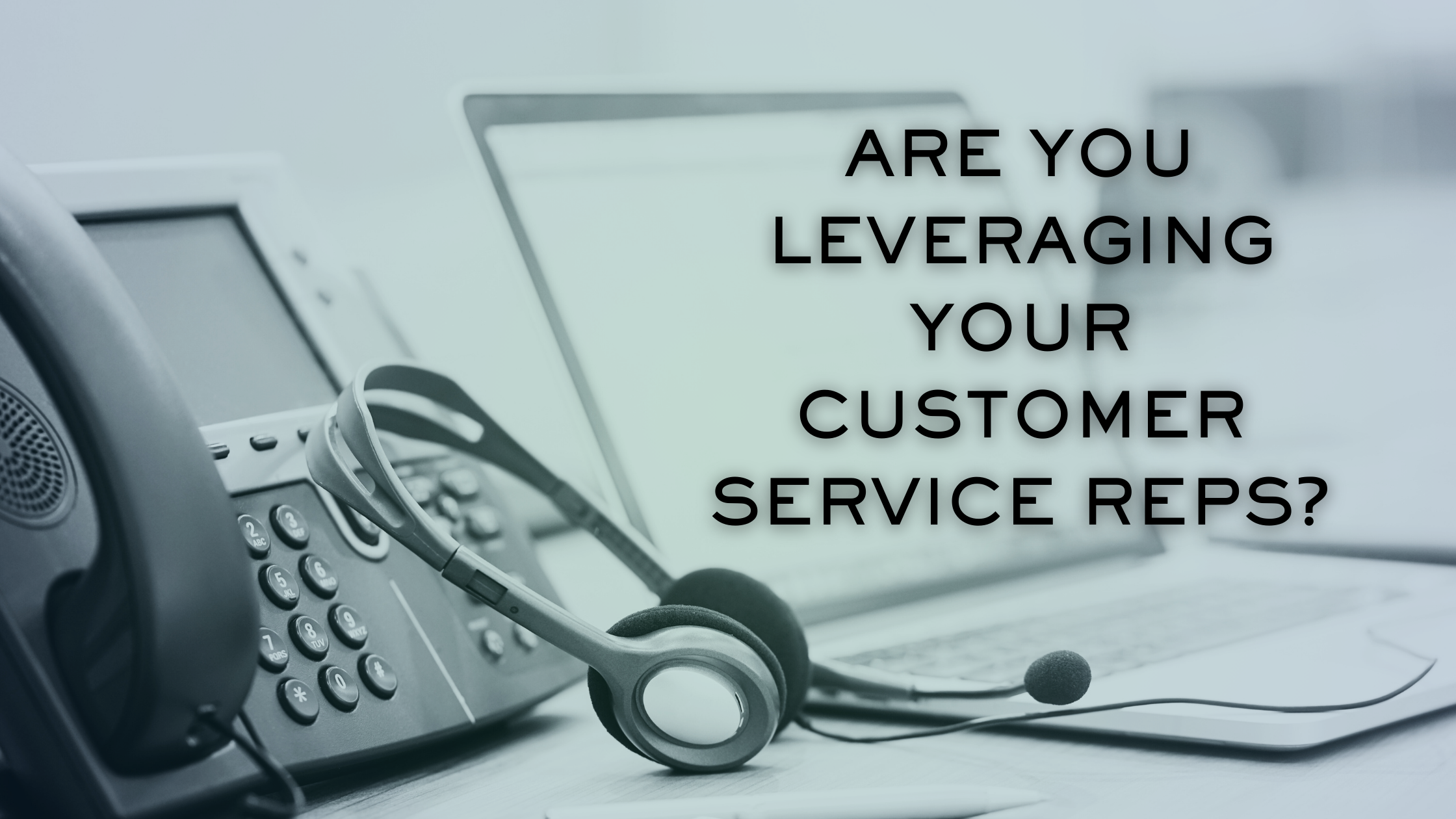Are You Leveraging Your Customer Service Reps?
Customer Service Representatives (CSRs) are more than just a voice on the other end of the phone, they’re the heart and soul of customer experience. Sure, when you first hired them, their main role might’ve been handling incoming calls and directing them to the right place. But as customer expectations grow, so does the role of your CSR team. They’re now expected to troubleshoot issues, calm frustrated customers, and even assist in sales. In short, they’re an essential extension of your sales and service departments.
Let’s be honest: finding time to focus on CSR training is often low on your priority list. But should it be? Think about it… Your CSRs, along with your sales team and technicians, are your companies “front-line” to customer interaction. Their communication skills, product knowledge, and empathy can make or break customer loyalty. It’s time to prioritize their training and empower them to drive business growth.
Here’s a breakdown of some top training tips to get your CSRs on the path to success.
1. Communication is Key—Upstream and Downstream
One common pitfall is leaving CSRs out of the communication loop. Imagine your marketing tank monitors to your automatic delivery customers. You share this information with the sales team, who then share it with their customers, but you neglect to inform the CSRs. Now, when a customer calls with questions about this offering, your CSR is caught off guard. Not a good look, right? Make sure CSRs are fully informed about your products, services, and promotions. By including them and ensuring awareness about your marketing efforts, they’re better equipped to answer questions, provide accurate information, and even upsell when appropriate.
2. Train Your CSRs Like You Train Your Sales & Service Teams
Your CSRs aren’t just administrative support; they’re part of your company’s front line, representing your brand and offerings to homeowners. Just like you’d train your sales team on your products or your techs on installation, your CSRs need to understand these aspects too. Equip them with product knowledge and troubleshooting steps, so they can handle calls confidently and accurately.This may feel like extra effort, but think of the payoff. A well-informed CSR can answer questions directly, reducing the number of call-transfers and improving overall customer satisfaction. Plus, they’ll be in a position to cross-sell effectively, creating more business opportunities.
3. Develop and Regularly Update “Frequently Asked Questions” (FAQs)
A comprehensive FAQ document is a game-changer. Many companies have one, but how often is it updated? And more importantly, how often is it actually used? Leverage your customer-facing teams – CSRs, technicians, and sales reps – to build a living, breathing FAQ resource. For example, if a customer calls about their home not heating properly do your CSRs know the “10/70 rule”? Keeping FAQs current and accessible enables CSRs to handle calls efficiently. And here’s a bonus tip: many of these FAQs can be added to your website, reducing inbound calls by letting customers find answers themselves.
4. Embrace Role-Playing
Yes, role-playing might feel awkward at first, but it’s an invaluable training tool. When CSRs practice handling calls in a controlled setting, they gain confidence and learn from both management and each other. Role-playing allows managers to observe how CSRs react in real time and provides an opportunity to offer constructive feedback. Plus, it’s a team-building exercise. CSRs learn from each other’s strengths, which can improve overall team performance. By getting comfortable with challenging scenarios in training, they’ll be ready to handle real-life situations with ease and professionalism.
5. Strategically Incentivize
Not all incentive programs are created equal. Think strategically about the behaviors you want to encourage among your CSRs. For instance, if you offer the same incentive for signing up new customers, there’s no particular push toward a specific goal.
Imagine you offer $5 for enrolling a “will-call” customer and $10 for an “automatic delivery” customer. Which one do you think your CSRs will prioritize? When incentives align with your business goals, your team’s motivation will naturally steer in the right direction.
A Path to Success
Take some time to apply some (or all) of the above tactics! Taking the time to apply some of these tactics into your CSR training program will really amp up your operational efforts and essentially make your company more efficient and more prosperous.
Investing in CSR training has a ripple effect… Well-trained CSRs improve customer satisfaction, streamline operations, and drive more business through upselling and cross-selling. By applying these strategies, your CSRs can become a powerful asset – not just a support function.
Ready to get started? Whether you’re building a training program from scratch or tweaking an existing one, remember: your CSRs are worth the investment. They’re the voice of your brand, the face of customer experience, and a critical link in your sales chain.
Need Assistance? We’re Here to Help!
Building an effective CSR training program can feel like a tall order. If you’re unsure where to begin or need guidance on refining your approach, we’re here to help — don’t hesitate to reach out.

